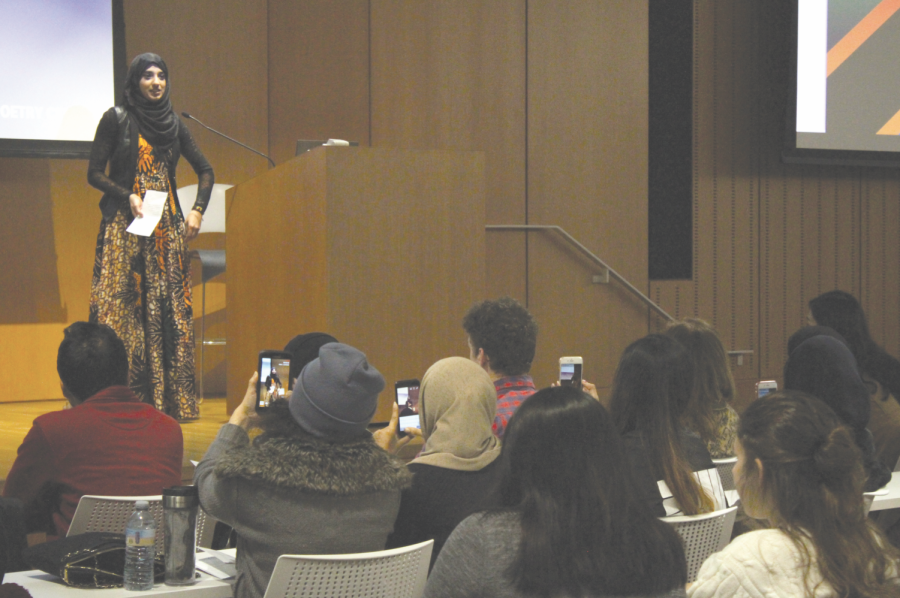Traveling Stanzas poetry reading unites cultures
November 16, 2016
Cultures united at the third annual World Poetry Reading Tuesday night in the wake of a divisive election season.
Kent community members from all over the world participated in the reading, an event seeking to foster global voices by poets reading in both English and their native language.
David Hassler, director of the Wick Poetry Center, said he hopes the reading will bring about the global voice of poetry.
“It uses poetry as a way of building bridges between cultures and people, especially in a time where people can so easily feel cut off from each other,” he said.
Hassler also said hearing poetry read in its native language allows listeners to hear the music of the poem — something one cannot usually get from a translation.
“When you hear 15 different languages spoken, you get a very visceral sense of the global culture that is our planet,” he said. “(We see) poetry as a point of access to share one life story with another and bring people to find common ground, and more human emotions that don’t stop at the border from one language to another or one country to another.”
Khadija Al Habsy, a junior mathematics major from Tanzania, said it was very rare to find someone else who speaks her native language of Swahili.
“I found that all of the events I go to, I don’t see anyone from Tanzania,” Al Habsy said. “I kind of hate it. So I was like, ‘Okay. I have to practice and I have to do something for my country’.”
Al Habsy said she thinks poetry can shine light on the people who only care about power and not the welfare of others.
“The solution is to not be offensive,” Al Habsy said. “Take care of your business. Live in peace. Love each other. We need to be happy in this life. Why are we even fighting? There’s no reason for this.”
She said she wants to take the experiences she has had while in the U.S. and move back to Tanzania to be a teacher.
“We do have very few female teachers, especially in science subjects,” Al Habsy said. “It’s good for me to be here so that I can go back and help.”
Nisreen Yamany, an English graduate student from Saudi Arabia, said she stumbled upon the Wick Poetry Center and its programs while attending a workshop hosted by Hassler.
“They have this wonderful community of poetry and it’s very inspiring,” she said. “I look at it as a quiet and inspiring town.”
Yamany said she has always been in love with her native language of Arabic, and fell in love with English words as well. She said poetry is not only beautiful, but also powerful.
“Poetry is more like a weapon,” Yamany said. “You can say a lot. There are layers and layers of meaning.”
Yamany also wants to return to Saudi Arabia to teach English and literature. What once was merely a choice out of few options has now become a tool for empowerment, she said.
“My experience here has changed me a lot,” Yamany said. “I’m looking forward to teaching and leaving my mark with my students: empowering them in certain ways, and opening up doors in certain ways like they have been opened for me.”
Rania Aboalela, a computer science graduate student, came to support Yamany and enjoyed seeing the event’s diversity.
“I liked watching something like this,” Aboalela said. “To hear and to see how everyone presents themselves. From what they choose to read, you can think about how they think.”
For more information on the World Poetry Reading and Wick Poetry Center, go to kent.edu/wick.
Emma Keating is the arts and sciences reporter, contact her at [email protected].

























